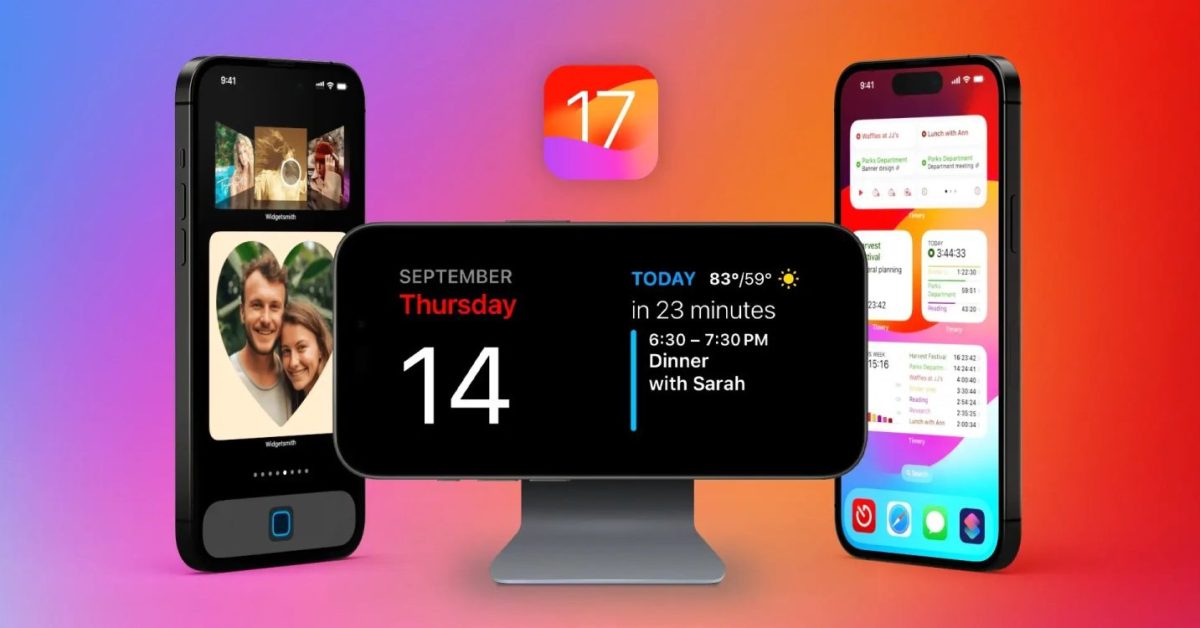Maybe if android 14 was guaranteed to have 70% adoption in one week developers would actually care. There’s no point developing features for 5% of users
Google never should have opened it up for hardware manufacturers. They should have just made the OS and licensed it out like windows. Then hardware manufacturers wouldn’t be able to release crappy forks that never get updated.
I disagree. If google hadn’t opened up, manufacturers wouldn’t have bothered. We also have great UIs like oneui with useful quality of life features not found in stock android. Not to mention a longer update cycle than even Google the developer of android.
So, it would have failed… haha
This assumes that Android would have anywhere near the reach it does now because of it’s openness.
Google actually is enabling hardware manufacturers to control the end to end experience by allowing them this level of control over their own ecosystem.
The difference is … they’re not Apple. No Android manufacturer operates at the scale Apple does. Licensed Android won’t change that any more than it will change all of the Windows 7 and 10 licenses that still live on in the real world.
It would also put the onus on Google to produce all the device drivers and compatibility layers needed to support the breadth of hardware currently available. This would slow the entire market down.
Hardware manufacturers on average do a shitty job keeping their fragmented operating systems up to date. My iPhone has gone through many major version updates. If hardware manufacturers don’t want to quickly, or ever, update they should have just shipped their phones with stock Android, and allowed us to update it to whatever is the latest.
Stock Android wouldn’t include the kernel drivers and compatibility layers needed to run your phone. I think you’ve missed the point.
Sorry, I thought it would be obvious that hardware drivers would be provided by the hardware manufacturer, and then on a fresh install the OS would just… ya know… get them from the manufacturer. 😉
This is a gross misunderstanding of AOSP and OEM compatibility software and kernel driver integration, that comes from a very naive interpretation of how Android device vendors build AOSP for their hardware.
You should probably learn more about it before embarrassing yourself with this kind of arrogance. I have experience in both but, as it’s not my job to educate you, you’ll have to do so yourself.
Incorrect.
They didn’t really have a choice. They were building on open-source software and Linux and Arm are somewhat bad at abstracting the hardware. So this means that the manufacturers must homebrew their own distro for their hardware, instead of just publishing drivers like windows hardware does.
They’ve been working on fixing this, but fundamentally they built their castle on sand. And if they hadn’t, they probably never would’ve gotten anywhere at all and we’d all be on Blackberry or WebOS or WinPhone or whatever.
Windows Phone and webOS were amazing. Not just for their time, but even today. Major advancements in mobile OS’ came from WebOS like multi window task managing and my favorite feature of all came from Windows Phone. The most perfect on screen keyboard man has ever made. Specifically with audio. It had click sounds that were specific to a region of the keyboard and it was a low tone that was audibly pleasing. I wish we still had the same levels of competition that we did back in the day. Link to a video about the pleasing typing sounds on windows phone
There are still features of my windows phone I miss today.
Metro UI was and still is a sexy AF interface. The widget tiles had a motion to them that was delicate and beautiful. It was just such a beautiful OS. I’ve kept most of the phones I’ve ever owned because I like them and of the 10 or so I’ve done through over the last 13 years especially my two favorites are my windows phones an HTC 8x and a Nokia Lumia 1020.
Also the tiles were so useful because they didn’t take too much space and gave you necessary information at a glance. Another thing I liked was the app drawer where you just click on some letter and it pulled up a grid of letters (I don’t know what is the term used for this feature, it’s also there in windows pc) and we can just click on the letter of the app we want to access. I found this very convenient because I am very lazy about actually typing the name of the app I want or even scroll down for it. In fact I now use a third party launcher called launcher 10 on my android. It’s very similar to the windows phone launcher. I still have my old windows phone which I had purchased in 2014.
That was an interesting video.
Here is an alternative Piped link(s):
Link to a video about the pleasing typing sounds on windows phone
Piped is a privacy-respecting open-source alternative frontend to YouTube.
I’m open-source; check me out at GitHub.
You guys really just said that Linux and open source licenses are “a castle on sand” and they should “have done it like Windows”?
If you start running before anybody notice you may be able to make it. Go. Just. Go.
But no, seriously, that’s why I prefer Android. I have versions of it customized to handheld consoles, single board computers and a bunch of other stuff. I don’t want to be out there buying licenses for my platforms from Google.
Samsung is the biggest phone manufacturer in the world, Sony is a massive corporation.
If people want to sell phones the least they can do is have the software staff to back it up by doing maintenance. If I wanted an iPhone I’d buy an iPhone.
Look I love open-source but the whole lack of a separate binary driver layer is dumb and is why Windows can support a machine for over a decade while Android has terrible device-specific support windows and you don’t just get your new OS version from Android Update, you have to get it from your vendor.
Imagine if you owned a Dell and couldn’t run Windows Update, but had to use Dell Update instead?
I have an ASUS.
So… no need to imagine anything.
Also, I’m not an OS engineer, but that wouldn’t require a closed source, privately licensed OS, would it? Just to not build it as a Linux offshoot, I suppose.
I disagree. For me that is the beauty of android.
As long as you’re happy, I’m happy.
That’s kind of a moot point seeing how it will be adopted by 100% of phones at one point (except for phones which are out of support, but those won’t get used at all after a certain point)
Is there not a thing where Spotify user still funny have an icon that changed with the wallpaper you use and people where angry?
Remember that all apps need to target the almost-latest target API at least. That means Android 13 for all new apps and app updates since Aug 31.
https://support.google.com/googleplay/android-developer/answer/11926878
The update philosophies on Android and iOS are vastly different, as is mentioned in the article.
iOS bundles a vast amount of things in their updates, such as core app updates, platform capability updates and developer API updates.
Android uses the OS update to bring new platform capabilities, mostly, and not even entirely through the mechanism, with lots of things now starting to be delivered unbundled from OS version. Core apps are delivered entirely separately from the OS version. Developer API updates often are backwards compatible using the AppCompat library, meaning that older OS versions sometimes get to benefit from the updates as well.
These differences have led to some significant differences in OS version support - a common OS version support policy for iOS app developers is to support the two most recent OS versions, while android support often is afforded to versions as far back as 5.0.
This in turn leads to an interesting effect, where the useful life of an Android device can actually be longer than that of an iOS device, despite the latter having access to OS updates for a longer time. This being because of the fact that the iOS device essentially becomes unusable once it’s no longer supported - you literally can’t install apps from the app store anymore, because they have long since dropped support for your OS. Android in the meantime keeps on going, because of the different philosophy of backwards compatibility among Android developers.
All of that being said, I do wish that Android developers were a bit better on things like UI consistency and supporting the latest OS features. I don’t know if I’d trade it for what iOS has, though.
This in turn leads to an interesting effect, where the useful life of an Android device can actually be longer than that of an iOS device, despite the latter having access to OS updates for a longer time.
This is so true.
I have a first-Gen iPad Air that runs fine, but is fast becoming useless, despite having received an OS update months ago.
While an old Galaxy S4 I have around runs many apps that still function fine (especially since I can find old compatible versions on apk mirror).
Pretty frustrating, because the iPad Air performance is plenty for the things I want to use it for.
All the things they listed that Apple added is already possible though
I think there also is something different in play. Most Apps come from the U.S. where most people in the tech sector use iPhones. So what OS are they most likley to support better?
Most people in the tech sector use iPhones
As someone in the “tech sector”, this is not my experience.
Yea, we’ll use them for work phones because Corp manages them anyway (so no advantage to using Android). But pretty much everyone uses Android for personal devices.
Management and above are iPhone.
I think there also is something different in play. Most Apps come from the U.S. where most people in the tech sector use iPhones. So what OS are they most likley to support better?
Personally I’m giving all of the apps that haven’t implemented a themed icon a 1 star when Android 14 launches.
You’ve literally had a year and a half. It takes 60 seconds to do. Stop being incompetent.
[This comment has been deleted by an automated system]
It literally does take 60 seconds to do. It also is incompetence if you’re not up to date on the latest Android design guidelines.
in some cases the company behind the app vetoes conformity. not much a developer can do when management wants their branding to stand out
Then the company deserves it.
A very small percentage of android users are at Android 14. Grow up
Android 13 has themed icons.
Maybe developers should grow up and learn to be competent?
A think that a lot of devs take “themed icons” as a gimmick feature on top and rather focus on app stability and other features, or they just don’t care because they don’t see it as a deal-breaker in any means.
Yep.
As a user, I agree with them.
I wish Apple hadn’t abandoned so many devices to rot on an old version for no good reason and then made their “One” service only work on the latest version as a blatant push to make people buy a new iDevice when the one they have would work just fine otherwise.
Literally what are you talking about besides the handful of gimmicks they restrict to new models?
They have phones that get consistent major updates for like 5-6 years. The 6S came out in 2015 and only stopped getting major updates like two years ago. And if you had iOS 12 on a phone you still got a security update this year. Which means the iPhone 5S, which came out in 2013, got an update a decade later. Not a single Android device I have ever owned has that unless I flash my own rom.
What he means is that typically after 5v years your iPhone won’t get a system update. Lets say you’re on iOS 10. Then next year Apple will tell all Devs that their apps may not longer support iOS 10 and below and all apps must use the ios 11 SDK.
Immediately all those folks stuck on iOS 10 cannot upgrade their apps and eventually they may stop functioning.
Whereas on the Android Play Store most apps require Android 5 and above. We’re about to get Android 14. That means that an 11 year old Android can still install the very latest apps and games.
if you bind the web browser to the system update you can have as long updates on Android as iOS. Considering how old devices get a washed down version of “updates” and everyone claiming that’s the holy grail of system support when google can push browser and security updates through Google Play Services. But keep repeating the only talking points you’ve ever known. You don’t have to wait for a system update for a browser vulnerability like a caveman on Google supported Android. And if Apple has to release the patch for the same vulnerability, it has to push a “system update”.
woo hoo, I had to use the Apple system update, Apple is the GOAT.
jeezus. 🤦♂️
Android by no means is perfect, is fragmented beyond control and Google is shit but these “consistent major updates” is apple fed bs. but you do you
Wow what a shit comment. It’s like you ignore things like API and feature updates across major releases that apps beyond the stock Apple ones get to take advantage of. Which again, are averaging 5 years of support.
Idgaf what OS someone uses. I love tech, I use a bit of everything. I fucking love Android and all the flexibility it gives me. Grow the fuck up.
Indeed this is a strength of Android and something most tech websites don’t understand: on iOS to get a bug fix the entire OS needs to be updated. On Android this is not the case. Google can just push out the update via the Play Store.
Security updates have to come from the vendor, which is exactly the same on iOS. Apple has to update the entire OS to issue a security update. Whereas on Android the OEM can just send out a small security fix
In both cases the OEM is the weak point because they need time to push it out. Whether ios or Android.
One nice thing on Android is that you don’t need to wait for an os update to add features to your device. You can just install an app.
For example, my LG V30 running Android 9 did not have gestures. So I downloaded an app called NG Gestures (needs an adb command for permission) and I had full gestures as if I were running Android 10 or higher.
Same thing with Dynamic Island. iPhone 14 user’s have to buy the iPhone 15 is they want dynamic island whereas on Android you can just install one of the many dynamic island apps and instantly have that functionality,. And that typically includes phones running Android 5 and higher.
If Apple has to release the patch for the same vulnerability, it has to push a “system update”.
And they do, quickly, and at worst it takes me 5 more minutes to reboot my phone. Meanwhile on the Pixel 6 Pro, my phone maybe couldn’t have called 911 for a week.
huh? my Pixel 6 update yesterday took 2 minutes
I was talking about iOS updates for things Apple doesn’t have de bundled from os updates. Since iOS updates are controlled by Apple and not carriers, it’s not similar to Android.
@phillaholic @ink if it takes a week for an update to get to you, you can blame your carrier for that. Google pushes updates very quickly to unlocked phones.
It’s a phone Google makes, with Software they make, a security vulnerability that Google discovered, which they alerted Google to 90 days before going public, a deadline they set, and I should blame AT&T for being responsible for this situation? Uh huh.
Meanwhile the carrier has nothing to do with anything iPhone related other than carrier settings.
@phillaholic carriers have to “approve” updates; Google, Samsung, or whoever is your vendor can’t actually push an update because the carrier must sign it with their key. Was it Google’s fault for the vuln? Yeah. Was it AT&T’s fault for your update to take 1 week longer to roll out to you? Yeah.
You see that as the carrier waiting too long, I see it as Google having 90 days and waiting until the last minute. Regardless, Google allowing a third party to handle is a defective design.
My old iPhone 7 (manufactured Sep 2016-2019) received a security update last month. Meanwhile, I bought a Samsung Android tablet new a few years ago only to find that the currently selling model wouldn’t upgrade to the current very of Android.
I’m not an iPhone user, but they have better long-term updates than the vast majority of other vendors. Five years of support, I don’t disagree with them wanting to push their newest device - they are a business and want to make money. Most features work except for things where there are hardware limitations.
I gave an example that has absolutely nothing to do with hardware limitations.
Your example didn’t really make any sense, as you can use Apple One on iOS 14 or newer. So the oldest supported iPhone would be the 6s from 2015, which at the point iOS 14 came out was already 5 years old.
Tell that to my iPod Touch 7 on iOS 15 that refuses to then.
What happens when you try to use it? That’s very at odds with the documentation so I’d wonder if you’d need to log a support case with them or something.
It claims to be unable to connect. Support is full of people with the same complaint, Apple doesn’t care to fix it.
deleted by creator
Yep
It is a tough decision…. On one hand you screw older devices; relegated them to second tier status and leave them abandoned and at risk
On the other hand you have a more consistent install base and better support and the ability to drop older systems and their bugs.
Someone gets screwed either way
Yeah, but not the same amount or scope of “someone”, though.
You’re saying you either make several hundred million devices into ewaste overnight versus “had to wait for a bit for the latest update to propagate”.
Not the same scale of problem right there.


















